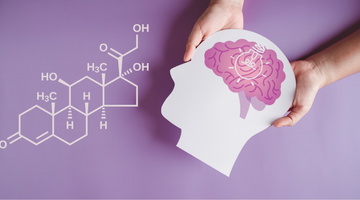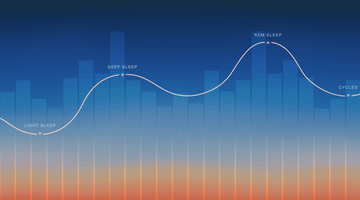Want to find out if keeping your gut healthy can keep you strong as you age? Read on to find out the science behind it and what you can do to support your gut health.

In recent years, research has linked gut health with our overall health. In fact, the health of our guts has been found to influence how effective our immune system is, how our brains function, and how much we benefit from exercise.
But why is this the case? Let’s start by getting to grips with gut microbiomes.
Gut bacteria
When we think of bacteria, we often think of germs that make us sick. But our bodies actually play host to trillions of bacteria.
Indeed, our gastrointestinal tract is filled with bacteria, along with viruses and other microbes. This huge collection of microorganisms is known as your gut microbiome.
Everyone’s microbiome is different. They also change as we age. Often, they become less diverse as we get older, and it is this drop-off in diversity that has been linked to increased ill health and a more rapid transition to frailty in our later years.
This is because less diverse microbiomes have fewer ‘good’ bacteria and more ‘bad’ bacteria. Bad types, such as Enterobacteria, are opportunistic and can lead to infections if given the chance.
Conversely, the good guys can do a lot to keep us healthy. In fact, they can strengthen our immune systems, help brain function and increase fitness.
The benefits of good gut health and ageing
Diversity, with a plentiful supply of good gut bacteria, is the key to all of the health benefits from good gut health.
This includes living longer. A study published in 2021, for example, revealed that our gut microbiomes become increasingly unique to each individual starting from mid-to-late adulthood. Interestingly, those who were found to be healthier at 80+ years had continued to develop unique gut microbiomes. This was not the case in the unhealthy part of the sample.
Low uniqueness went on to predict decreased survival in the study’s 4-year follow up.
The health of your brain has also been linked to healthier guts. As we age, our cognitive function declines. For some, this results in illnesses such as dementia. Maintaining cognitive function is therefore a key aspect of healthy ageing.
Research is still ongoing, but studies involving mice have indicated that gut health could play a part in keeping a healthy brain. In one piece of research, the transplant of microbiota from young mice into old mice improved their brain function.
How well we exercise has also been linked to gut health.
Research has found that an intact gut microbiome is needed to help muscles adapt to exercise. It’s therefore been suggested that programmes to reduce age-related muscle loss include strategies to boost gut health.
How can you improve gut health for better ageing?
To improve your gut health you need to eat the right things.
Bacteria in the gut thrive on fibre. This means you should include plenty of fruit and vegetables in your diet.
This includes:
- Apples
- Raspberries
- Blueberries
- Strawberries
- Brussels sprouts
- Spinach
- Kale
- Broccoli
- Courgettes
You should also include plenty of wholegrains, pulses, nuts and seeds.
If you’re older and struggle to get enough fibre, try making dishes such as porridge or fixing yourself a smoothie.
Exercise is also important
Research has found that exercise and gut health may have an interdependent relationship. Good gut health helps you to exercise, and exercising also increases your gut diversity. Both aerobic and resistance training have been found to have a positive effect in some studies, so include both in your regime. Don’t go overboard, however. Excessive exercise may lead to a negative impact on your gut health.
ENJOYED THIS ARTICLE?
Sources
- https://www.nature.com/articles/s42255-021-00348-0
- https://www.ncbi.nlm.nih.gov/pmc/articles/PMC5357536/
- https://atlasbiomed.com/blog/ageing-and-the-gut-microbiome/
- https://www.medicalnewstoday.com/articles/324465?c=233796876933
- https://www.healthline.com/nutrition/gut-microbiome-and-health#TOC_TITLE_HDR_3






